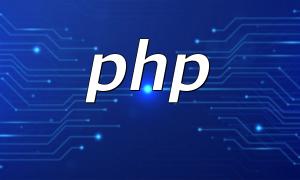Cross-Site Scripting (XSS) is a common web security vulnerability where attackers inject malicious code into webpages. When users visit these pages, the code executes, potentially stealing user information, performing malicious actions, or compromising the website.
For example, if a form lacks protection, an attacker can insert malicious script like the following:
<span class="fun"><script type="text/javascript">alert('hello world');</script></span>
When users submit this form, the script gets injected into the page, affecting anyone who views it.
The first step to preventing XSS is rigorous filtering and validation of all user inputs. While PHP provides built-in filtering functions, it is recommended to write custom validation functions tailored to your needs. For example, a function that ensures input contains only letters and numbers:
function isStringValid($str) {
return preg_match('/^[a-zA-Z0-9]+$/', $str);
}Additionally, special characters in user input should be escaped to avoid being interpreted as executable code:
function escapeOutput($str) {
return htmlspecialchars($str, ENT_QUOTES, 'UTF-8');
}This function encodes HTML tags using htmlspecialchars() to prevent JavaScript injection.
Using CSRF (Cross-Site Request Forgery) tokens is an effective defense mechanism. The server generates a random token stored in a cookie and includes it in a hidden form field. When the form is submitted, the server verifies that the token from the form matches the one in the cookie, ensuring the request's legitimacy and preventing forgery.
The implementation involves generating a random string, storing it in both the cookie and the form hidden input, then validating the match upon submission before processing data.
Beyond input validation, apply additional security settings:
Avoid using eval() since it executes arbitrary code and introduces high security risks.
Enable Content Security Policy (CSP) to restrict which resources the browser can load and execute, reducing XSS attack surface.
Limit file uploads by whitelisting file types and setting size constraints to block malicious files.
When outputting data, avoid directly embedding user input, especially if it contains HTML tags. Use encoding functions to escape special characters and prevent script execution. For example:
$string = '<script>alert("XSS");</script>';
echo '<label>' . $string . '</label>'; // Unsafe
echo '<label>' . htmlspecialchars($string) . '</label>'; // SafeXSS attacks are a frequent and dangerous web vulnerability. Through strict input validation, using CSRF tokens, appropriate security configurations, and standardized output encoding, developers can significantly reduce the risk of XSS. Keeping up with security trends and regularly updating defenses helps protect user privacy and website integrity.









